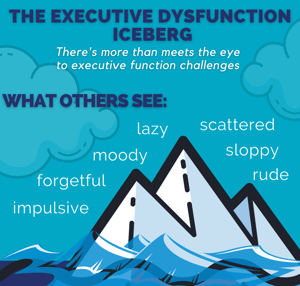When I was in grad school, I worked at a gym. One of the things I recall  vividly about my time there were the encouraging vibes from personal trainers, group fitness instructors, and the members themselves. People clung to mantras such as “The pain you feel today will be the strength you feel tomorrow” and “The only bad workout is the one you didn’t do”, and “Be stronger than your excuse.” Phrases such as these were meant to inspire persistence with your workouts. And many times, they did.
vividly about my time there were the encouraging vibes from personal trainers, group fitness instructors, and the members themselves. People clung to mantras such as “The pain you feel today will be the strength you feel tomorrow” and “The only bad workout is the one you didn’t do”, and “Be stronger than your excuse.” Phrases such as these were meant to inspire persistence with your workouts. And many times, they did.
As well-intended as these messages were, though, they were sometimes problematic. Sometimes the pain I felt was a sign I should stop the workout -- not push through. Sometimes the excuses were legitimate and necessary reasons for skipping a spin class here and there. It wasn’t until nearly a decade later did I become acquainted with the concept of toxic positivity which allowed me to name what I was feeling in response to these inspirational no-quit quotes.
Psychology Today defines toxic positivity as “keeping positive” and “focusing on positive things” while dismissing “anything that may trigger negative emotions.” Dr. Konstantin Lukin explains that when “you avoid feeling [negative emotions], you tell yourself that you don’t need to pay attention to them. [Then] these emotions become bigger and more significant as they remain unprocessed.” If negative emotions continue to grow unacknowledged, we become ripe for developing some significant self-esteem issues. We might wonder why we can’t live up to all of the “good vibes only” expectations surrounding us - and that we are somehow deficient if we can't display relentless resolve to conquer our challenges.
To be fair, cultivating a positive mindset is critical to our success in many cases. If we gave up on something the moment it became difficult, we’d find it quite hard to get through life. The key here is that it's too much emphasis -- and in some instances exclusive focus -- on positivity that can cause problems.
Executive Function and Your Child's Self-Esteem
How does this relate to Executive Functioning? Challenges with Executive Function skills can exacerbate the intensity of toxic positivity. For example, if your child’s school is filled with “You can do it!” mantras but your daughter’s inattention makes it so that some days she really, truly cannot do it, she’s bound to see herself in a poor light. Even without peppy posters pushing positivity, your child may find that a mismatch between what’s expected and what they can do feels just plain defeating. Without the ability to organize papers, for instance, your son might feel acutely flustered when the class turns in homework and he’s the only one still rummaging through his backpack while everyone waits, looking at him.
While your child is working on growing their Executive Function skill set, one important approach you can take is to help them reframe superficially positive messages in order to make those messages more thoughtful and useful. Avoiding the negative consequences of toxic positivity involves emphasizing growth and acknowledging neurological nuances. In other words, it’s more beneficial when we try to work with ourselves than to focus on working against the ways in which our brains respond to different challenges. When your child’s Executive Function weaknesses complicate their self-confidence, you might consider trying some of these phrases:
- If something seems challenging, it’s likely you just haven’t learned how to do it yet
- When the going gets tough, use resources to help you get through
- When you want to give up, give your brain a break instead
- If you’re feeling like you’ve failed, create a new plan of attack
- Confusion means your brain is asking you to slow down and ask for assistance
The Takeaway
Poor Executive Function skills can lead to lowered self-esteem. Coupled with positive-only messaging, your child might find it’s easier to quit than to face and embrace new challenges. Helping them re-contextualize struggles and failures can make a major difference in sustaining motivation, encouraging growth, and boosting their self-confidence. That way, the next time someone tells them “You can do it!” - they might be ready to respond “Yes, I can, and with your help.”
Photo by Jesús Rodríguez on Unsplash
 Students with poor Executive Function skills can take a hit to their self-esteem when others view them as lazy, scattered, or moody. Our infographic helps others gain empathy for students who struggle with self-management skills. Download now to see 8 skill deficits hidden under the iceberg!
Students with poor Executive Function skills can take a hit to their self-esteem when others view them as lazy, scattered, or moody. Our infographic helps others gain empathy for students who struggle with self-management skills. Download now to see 8 skill deficits hidden under the iceberg!

